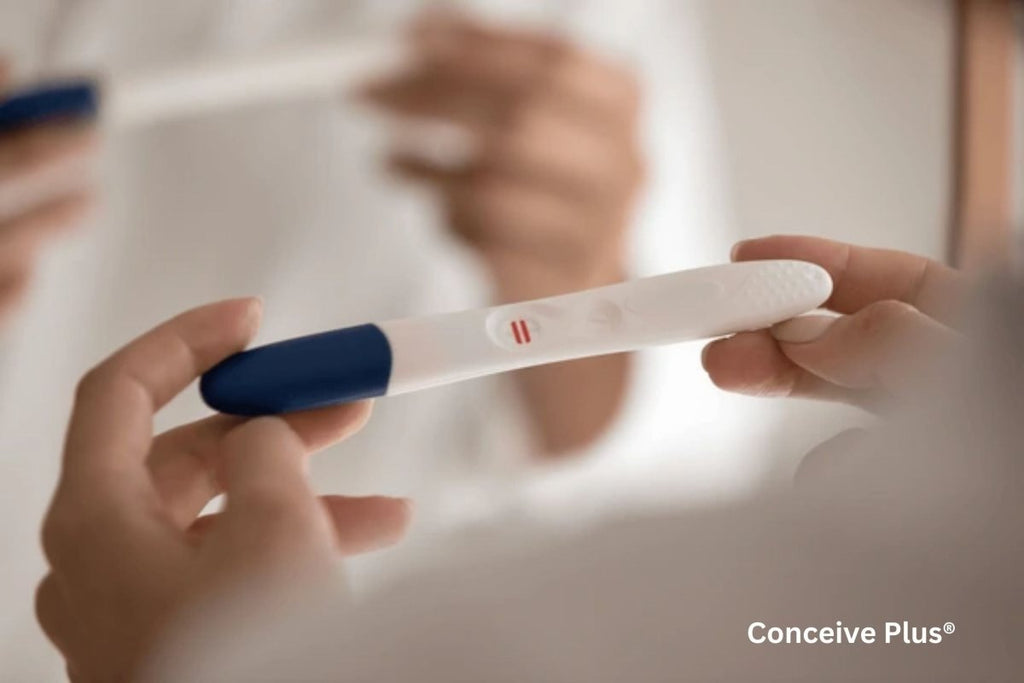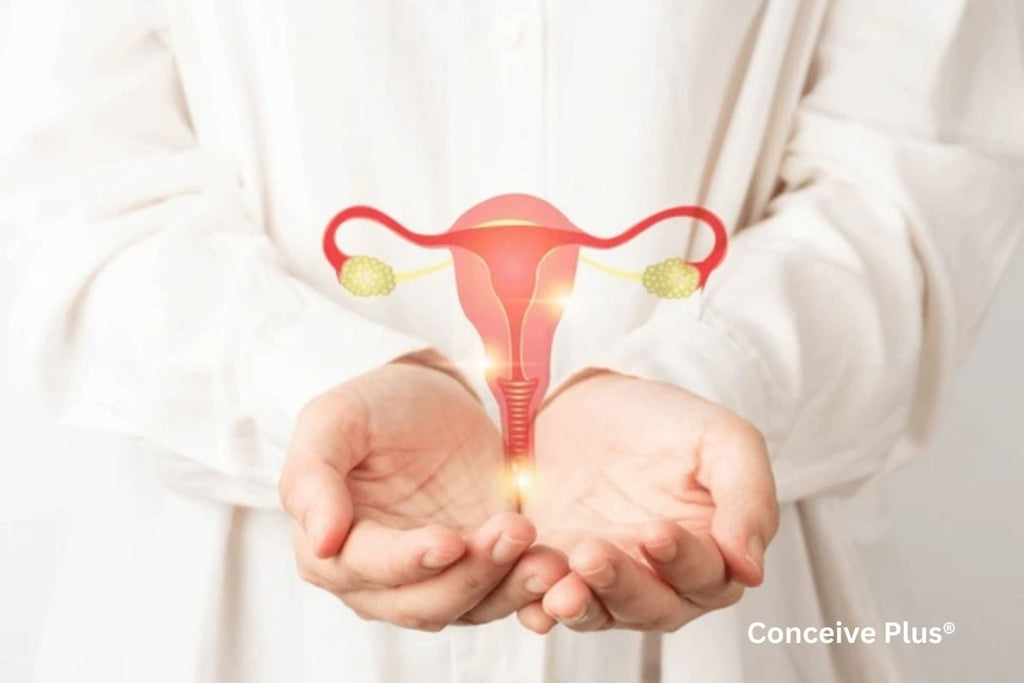Vitamin A Pregnancy Needs: Sources and Safety Tips

A balanced diet with essential nutrients is vital for the body to perform many key functions effectively. The requirement for a balanced diet and nutrients increases significantly when a woman gets pregnant due to the rapid changes in the body during pregnancy [1].
Vitamin A is among the essential nutrients that support a healthy pregnancy in many ways [2]. This increased utilization of this vitamin in the body means you require more of this vitamin during pregnancy than normal. But how much more? Or from where can you get vitamin A?
In this article, we will explore the role of vitamin A pregnancy, how its deficiency can affect the mother and the baby, and what the common sources are to obtain vitamin A.
What is Vitamin A?
Vitamin A is a fat-soluble vitamin, which means that your body absorbs this vitamin along with fat. There are two primary forms of vitamin A:
- Preformed Vitamin A: Performed vitamin A is also called retinol, and your body can directly utilize it for key body functions like vision, immune system, reproduction, and growth and development [2]. This form of vitamin A is usually found in animal-based foods like liver, eggs, and dairy products.
- Provitamin A: Provitamin A, also called carotenoids, is not utilized directly by the body. When you eat Provitamin A carotenoid-containing food like carrots, sweet potatoes, and spinach, your body converts this form of vitamin A into retinol form in the intestine [3]. After this conversion, this vitamin can be used for important roles like immune function, healthy growth, and development.

Why Is Vitamin A Important During Pregnancy?
In addition to growing uterus size, pregnancy brings numerous changes in a female body to support the growing baby. Understanding vitamin A and pregnancy is particularly important since a pregnant body needs vitamin A for the following roles:
-
Development of the Fetal Organs
The initial important role of vitamin A during pregnancy is the development of the baby's organs. Studies show that vitamin A helps in forming the heart, which begins to pump blood early in pregnancy [4].
The lungs and kidneys also require vitamin A to grow and function properly. In addition to that, vitamin A assists in the development of strong bones and contributes to the formation of healthy eyes [2].
-
Supporting Immune Function
A strong immune system is essential for both the mother and the baby during pregnancy. Vitamin A contributes to strengthening the immune system by supporting the production of white blood cells [5].
This immune support helps fight infections and protects the baby from harmful pathogens. Similarly, an efficient immune system in the mother reduces the chances of infections that could lead to pregnancy complications.
-
Vision and Eye Health
Vitamin A is vital for the healthy development of the baby’s eyesight. It helps in forming the retina, which is necessary for capturing light and converting it into an image in the brain [6].
The vitamin also contributes to the proper growth of other eye structures, ensuring clear and focused vision. For the mother, vitamin A helps maintain good vision during pregnancy and reduces the risk of night blindness, a common concern during pregnancy caused by vitamin A deficiency.
-
Maintaining Maternal Health
Vitamin A is known for its ability to repair damaged tissues and accelerate recovery. This property of vitamin A can significantly benefit a mother in recovery after childbirth. It also supports skin health by maintaining its elasticity and promoting healing, which can be particularly helpful as the skin stretches during pregnancy.
How Much Vitamin A During Pregnancy?
Expectant mothers often confuse how much vitamin A in pregnancy or how much vitamin A while pregnant is needed. The recommended dietary allowance (RDA) for adult females is 700 mcg [7]. Studies show that pregnancy causes a 10 to 30% increase in the utilization of vitamin A for pregnancy [6]. Depending on the age when you are pregnant, here are recommended amounts of vitamin A:
- When pregnant at Age 19 to 50: 770 micrograms (mcg) per day
- When pregnant at Age 18 and under: 750 mcg per day
After pregnancy, during the lactation phase, the requirement increases further, and some women may require up to 1300 mcg per day [7]. These amounts include both preformed vitamin A from animal sources and provitamin A from plant sources.
Symptoms of Vitamin A Deficiency During Pregnancy
Pregnant women with vitamin A deficiency may experience:
- Dry skin
- Brittle hair or nails
- Frequent infections
- Difficulty seeing in dim light (night blindness)
- Fatigue or weakness
If you notice these symptoms, consult a healthcare provider for advice on dietary modifications and recommendations on vitamin A in prenatal vitamins.
Common Sources of Vitamin A
You can get vitamin A from both animal based sources and plant-based sources.
-
Animal-Based Sources
As discussed earlier, there are two common forms of vitamin A: retinol and carotenoids. Retinol is the type of vitamin A that your body can utilize directly, and you can obtain it only from animal-based foods. Some common sources of vitamin A retinol include:
- Liver
- Eggs
- Milk
- Cheese
- Butter
- Fish (e.g., salmon, mackerel)
- Cod liver oil
Remember that the liver is very rich in vitamin A retinol, and an excess of vitamin A isn't healthy. Overconsuming vitamin A can be risky, especially during pregnancy, so it is essential to consume such foods in moderation [8].
-
Plant-Based Sources
Plant-based foods contain provitamin A carotenoids (beta-carotene). Your body converts this form of vitamin into retinol in the intestine as per the requirements [3]. Some common examples of vitamin A carotenoid sources include:
- Carrots
- Sweet potatoes
- Spinach
- Kale
- Mangoes
- Apricots
- Bell peppers
In addition to animal and plant sources, you can also get vitamin A prenatal supplements after consulting your doctor. Prenatal supplements provide you with many other essential nutrients for pregnancy in addition to vitamin A.
Risks of Vitamin A Deficiency During Pregnancy
Vitamin A deficiency can affect many important functions in the body, but it becomes more serious if it happens during pregnancy. Here are some common complications associated with vitamin A deficiency during pregnancy:
- Impaired Fetal Development: Since vitamin A is essential for organ development in the baby, its deficiency can result in poor development of the key organs in the baby, like the heart, lungs, and kidneys [2]. The deficiency can also impact neurological growth and development, increasing the risk of birth defects [2].
- Weakened Immune System: Vitamin A has a major role in immune functioning during pregnancy, and its deficiency can result in compromised immune systems in both the mother and baby. This means they will become more susceptible to infections and other illnesses during pregnancy, increasing the risk of serious complications.
Can You Have Too Much Vitamin A?
Unlike water-soluble vitamins, overconsuming fat-soluble vitamins are more likely to cause toxicity and harm the body. Since vitamin A is a fat-soluble vitamin, an excess of it can be a serious risk, especially during pregnancy [8]. Excessive intake of preformed vitamin A or retinol can lead to the following complications during pregnancy:
- Congenital disabilities
- Hair loss
- Liver damage
- Dizziness and nausea
To avoid these risks, pregnant women should avoid high-dose vitamin A supplements. It is equally important to limit the intake of liver or liver-based products since the liver is very rich in vitamin A.
Tips for Safely Including Vitamin A in Your Diet
It is important to include vitamin A in your diet during pregnancy, but it should be done carefully. Here are some effective tips that can help you avoid both the deficiency and toxicity of this vitamin:
- Focus on Balanced Meals: Instead of only choosing dense sources of vitamin A like liver, you must include a mix of animal-based and plant-based foods. This ensures that you get a healthy amount of vitamin A without the risk of toxicity.
- Prefer Beta-Carotene Sources: Carotenoids or beta-carotenes are only found in plant-based sources and are a better choice for obtaining vitamin A. The reason is that there is less risk of toxicity since your body only converts carotenoids into functional vitamin A when needed. For those looking to ensure the healthiest pregnancy possible, understanding the role of vitamin D and pregnancy can further support maternal and fetal well-being throughout this crucial period.
- Avoid High-Dose Supplements: Speak with your healthcare provider before taking any vitamin supplements. Also, make sure that you only take the recommended dosage and avoid overconsumption.
- Practice Moderation with Liver: The liver is a great source of vitamin A for those with a deficiency. However, because it is very rich in vitamin A, eating too much can be harmful. It's important to consume it in moderation to avoid overconsumption.
The Bottom Line
Pregnancy is the time when a woman's body starts to utilize more vitamins and minerals to support pregnancy-related changes in the body. Vitamin A is one such nutrient that plays a significant role in the health of both mother and baby during pregnancy.
Vitamin A pregnancy supports the growth and development of fetal organs and organ systems during pregnancy. It also strengthens the immune functions and enhances vision for both the mother and the baby.
You can obtain vitamin A from animal-based foods like liver and eggs, and plant-based foods like carrots and spinach. However, it’s important to consume the right amount and avoid excessive intake to prevent potential risks.
FAQs
-
I accidentally took vitamin a during pregnancy, what should I do?
If you accidentally took a vitamin A supplement during pregnancy, don’t panic. It is safe as long as your overall intake does not exceed the recommended daily amount.
-
What are the risks of vitamin A deficiency for my baby?
Deficiency can lead to poor organ development, a weakened immune system, and an increased risk of birth defects. Vitamin A deficiency during pregnancy can also harm the mother by increasing the risk of infections, causing night blindness, and leading to poor overall health.
Resources Used
- Soma-Pillay, P., Nelson-Piercy, C., Tolppanen, H., & Mebazaa, A. (2016f). Physiological changes in pregnancy. Cardiovascular Journal of South Africa/Cardiovascular Journal of Southern Africa, 27(2), 89–94. https://doi.org/10.5830/cvja-2016-021
- Society for Birth Defects Research and Prevention. (n.d.). https://birthdefectsresearch.org/pubs/vitamina.asp
- Harrison, E. H. (2011). Mechanisms involved in the intestinal absorption of dietary vitamin A and provitamin A carotenoids. Biochimica Et Biophysica Acta (BBA) - Molecular and Cell Biology of Lipids, 1821(1), 70–77. https://doi.org/10.1016/j.bbalip.2011.06.002
- Zile, M. H. (2010). Vitamin A–Not for your eyes only: Requirement for heart formation begins early in embryogenesis. Nutrients, 2(5), 532–550. https://doi.org/10.3390/nu2050532
- Vitamin A. (2024, November 6). The Nutrition Source. https://nutritionsource.hsph.harvard.edu/vitamin-a/
- Maia, S. B., Souza, A. S. R., De Fátima Costa Caminha, M., Da Silva, S. L., De Sá Barreto Luna Callou Cruz, R., Santos, C. C. D., & Filho, M. B. (2019). Vitamin A and Pregnancy: A Narrative review. Nutrients, 11(3), 681. https://doi.org/10.3390/nu11030681
- Office of Dietary Supplements - Vitamin A and carotenoids. (n.d.). https://ods.od.nih.gov/factsheets/VitaminA-Consumer/
- Olson, J. M., Ameer, M. A., & Goyal, A. (2023, September 2). Vitamin A toxicity. StatPearls - NCBI Bookshelf. https://www.ncbi.nlm.nih.gov/books/NBK532916/















